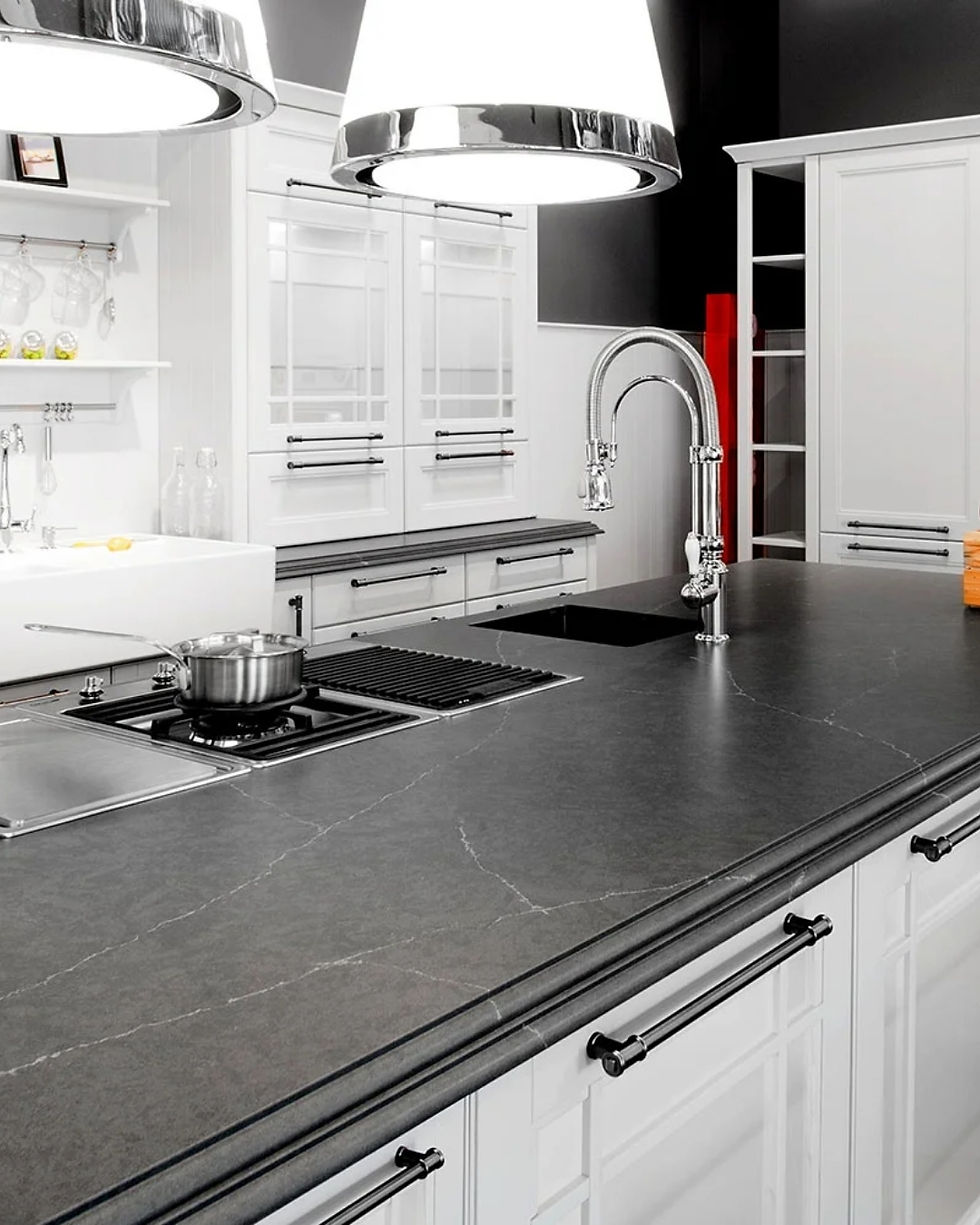Countertop Materials: Pros & Cons of Popular Kitchen & Bath Surfaces
- Rosie Haggard

- Jul 14, 2025
- 2 min read
Choosing the right countertop is an important step in designing your kitchen or bath. Each material offers unique characteristics, maintenance needs, and design appeal. In this guide, we break down the pros and cons of popular countertop materials to help you make an informed decision that fits both your lifestyle and your design vision. Whether you're drawn to the low-maintenance appeal of quartz or the timeless beauty of marble, understanding how each surface performs will guide you toward the perfect fit.

Quartz (Engineered Stone)
What It Is: Crushed natural quartz blended with resin, offering consistency and strength.
Pros:
Non-porous and stain-resistant
No sealing required
Available in many colors and styles
Durable and low-maintenance
Cons:
Can be pricey
Not as heat-resistant as natural stone
Edges may chip with heavy impact

Granite
What It Is: A natural stone with unique veining and patterns, cut from quarries around the world.
Pros:
Heat- and scratch-resistant
Adds resale value
Timeless, natural beauty
Cons:
Needs periodic sealing
Heavy – may require extra support
Can chip if struck hard

Marble
What It Is: A luxurious natural stone prized for its soft veining and elegant appearance.
Pros:
High-end aesthetic
Stays cool (great for baking)
Elevates the overall design
Cons:
Very porous and stains easily
Susceptible to scratches and etching
High-maintenance

Butcher Block (Wood)
What It Is: Countertops made from thick slabs of hardwood like maple, oak, or walnut.
Pros:
Warm, natural look
Can be sanded and refinished
Great for prep zones or islands
Cons:
Needs regular oiling or sealing
Can dent or scratch
Water damage is a concern near sinks

Laminate
What It Is:A budget-friendly surface made of decorative paper fused to particleboard.
Pros:
Affordable
Comes in many patterns and colors
Easy to clean
Cons:
Prone to chipping and scratching
Not heat- or moisture-resistant
Seams can be visible

Solid Surface (e.g., Corian®)
What It Is:A man-made surface made from acrylic or polyester resins.
Pros:
Seamless appearance
Non-porous and easy to clean
Minor scratches can be sanded out
Cons:
Can dent or scratch
Not heat-resistant
Mid-range price for a synthetic material

Concrete
What It Is:A fully customizable surface that can be poured, stained, and textured.
Pros:
One-of-a-kind appearance
Strong and long-lasting
Industrial, modern vibe
Cons:
Prone to hairline cracks
Needs sealing
Extremely heavy

Soapstone
What It Is:A smooth, natural stone with a matte feel and subtle veining.
Pros:
Heat- and stain-resistant
Darkens beautifully over time
No sealing required
Cons:
Softer stone – scratches and dents easily
Limited color options
Higher price point
Countertop Materials: Pros & Cons Final Thoughts
The best countertop depends on your lifestyle, design preferences, and maintenance expectations. Whether you love the natural beauty of stone or the practicality of quartz, there’s a perfect option for every home.
Need help deciding? We’re here to guide you through samples, compare materials, and create a custom design plan for your space.




Comments